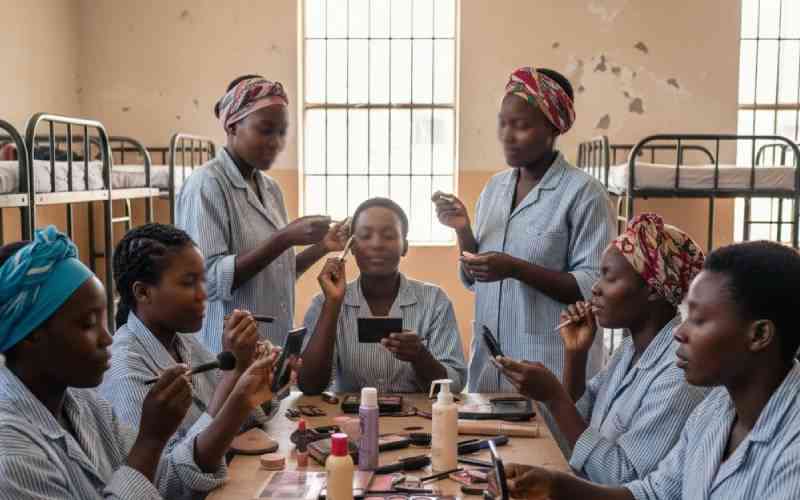
This week, I bumped into very deep revelations online. The ideas made me remember Chimamanda Ngozi Adichie's Danger of a Single Story. The narrative that marriages don't work or are outdated is growing in popularity even in Kenya. The younger generation seems afraid of marriage and is putting up unrealistic expectations. There is also the growing trend of enjoying everything a marriage can offer without the process of a legal union.
Has marriage exhausted its usefulness?
Trends can be misleading. Recently Steve Bartlett interviewed Scott Galloway who emphasized that marriage is still a very important social institution. Professor Galloway acknowledged that marriage is slowly becoming a luxury institution in the US but all is not lost. He said that marriage is good for building wealth. He said majority of wealthy Americans are in long term monogamous relationships.
Galloway explained that a team is powerful than an individual. He said that more wealthy people are marrying and staying married than poor people. The more things change, the more they remain the same. So pause those single line stories.
Pew Research Centre puts says 55 per cent of American marriages still have the man as the main breadwinner, 29 per cent of marriages share responsibility between spouses and 16 per cent are led by ladies as breadwinners. That is America for you, and American culture is big as global cultural influence.
The trending story is that men are weak and not stepping up to their role as breadwinners. Single story narratives tend to pick exceptions and propagate it loudly.
Recently, Elder Mboya came out of the woodworks. He was active on social media especially after his divorce where he was casting marriage in very bad light. He then left social media for some time then I saw another post on his wall. He put down nineteen points critical for the survival of a marriage, point 19 was meant to shock you.
What I picked from the post was love languages. We all know the five love languages that were enumerated by Gary Chapman. He put out that we all give and receive love in five distinct forms; quality time, gifts, acts of service, words of affirmation and physical touch. He posited that you love how you want to be loved. I have come to learn that all women and children have quality time as their love language.
- How can I help my kids build stronger social skills?
- Money talk at the dinner table: Teach children value
- How to prepare your toddler for a new sibling
- Teaching kids to choose the right company early
Keep Reading
Mboya added a sixth love language; safety. He advises people to make their marriage a safe space for their spouse. A safe space is a place where a person feels confident to be themselves. A place where they will not be exposed, discriminated or criticised. The world is harsh. We are rated, boxed into corners, profiled into tribes and cliques as well as social class. Home needs to be that place where you are free to be who you are. If your marriage provides such a space, then the other five languages of love can be spoken.
This was new to me, because I have held to the belief that marriage stands or falls on respect. The moment contempt creeps in, it crumbles. I have always imagined that once one party brings in contempt, as in "madharau" then the union cannot stand. It does not matter what the other party does. Now, I have added safe space to it.
Back to wealth creation. Marriage is a good space to bring up children as well as create wealth. A team is definitely better than an individual. This brings me to another video I bumped into online. A man was being interviewed and said that adultery is not the biggest killer of marriages. That anyone can be a companion. But not anyone can be a partner.
Partnership is where two people come in with their visions but collapse them for one big vision. If husband and wife insist on pursuing their individual visions, it leads to division. If this happens, a marriage will not survive. A is couple is advised to find a vision that is bigger than their individual visions and live it out for their marriage to survive.
It brought me to a word that Kenyans love to use online, vibes. Vibes come from the word, vibraphone, a musical instrument with hanging metal rods. Informally it means a person's emotional state as communicated or perceived by people around him. I will shift it to vibrations.
When two sound waves meet, two results are eminent. These are, constructive or destructive superposition. Constructive superposition is where the two waves stack one on top of each other and bring out a louder wave. Destructive superposition is where the two waves stack up, trough on trough and crest on crest. The resultant wave is the difference between the two waves and lower than the two original waves.
Marriage can be a destructive superposition but still survive below potential. A thriving marriage is where the union emits waves louder than the volume of the individual waves. The vibe must be right.
 The Standard Group Plc is a multi-media organization with investments in media
platforms spanning newspaper print
operations, television, radio broadcasting, digital and online services. The
Standard Group is recognized as a
leading multi-media house in Kenya with a key influence in matters of national
and international interest.
The Standard Group Plc is a multi-media organization with investments in media
platforms spanning newspaper print
operations, television, radio broadcasting, digital and online services. The
Standard Group is recognized as a
leading multi-media house in Kenya with a key influence in matters of national
and international interest.


